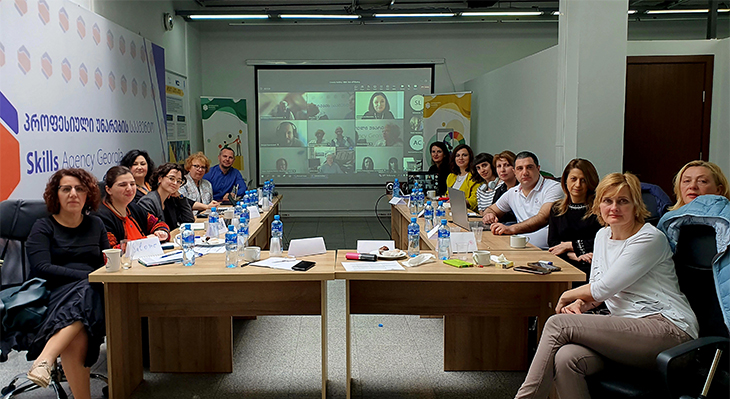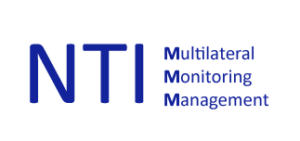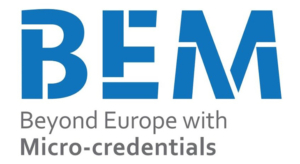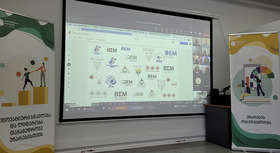Beyond Europe with Micro-credentials (BEM)
At the end of 2021, the European Commission published a call for proposals in the field of “Capacity Building” within the scope of the Erasmus Plus programme. The new feature of this call for proposals was that funding will be provided for international cooperation projects between organisations active within the area of vocational education and training both in the EU member states and in third countries which are not currently in the EU and/or which are not associated with the programme. The aims of the programme are to initiate relevance, accessibility and reactivity of VET institutions and systems in non-EU member states and to support education and training partnerships. BEM is one of 58 projects earmarked for funding in the 2022 calls.

© S. Leu
The main focus of the BEM (Beyond Europe with Micro-credentials) project is on the transfer of experiences from the ECVET to the development of micro-credentials. The objective is for these to be reflected in non-EU member states and to be adapted to the respective situation on the ground. The project launched on 1 January 2023 and will run for a term of three years.
Micro-credentials are used to develop skills of relevance to the labour market. Their contents are derived from the needs of selected sectors in the countries and are drawn up in consultation with regional companies. Micro-credentials are also aimed at groups of persons who have previously been only marginally covered by education systems (e.g. learners in structurally weak regions, single parents, unskilled workers, persons with support needs, refugees). BEM micro-credentials can be deployed in initial and continuing VET, as additional qualifications or as evidence of learning acquired by informal means. The plan is for 10 to 12 micro-credentials to be developed per country. Once created, micro-credentials will be mapped in a multilingual “Skills Bank” managed in Norway. This will also give them European added value and enable transfer to other countries or other sectors.
VET institutes, national qualifications authorities and vocational education and training providers (vocational schools, other training providers) from eight countries are cooperating in the BEM project. This broad project partnership allows micro-credentials to be accredited, documented, recognised or validated in accordance with the respective applicable stipulations in the different countries, thus establishing a bridge between education (VET and higher education) and the world of work.
The BEM project partnership encompasses EU member countries, associated countries, candidate countries and countries which are not members of the EU (Montenegro, Serbia, North Macedonia, Armenia, Georgia, Ukraine, Norway, Germany).
BEM partnerships
- Saxony Training Association for Environmental Protection and Chemical Occupations, Dresden (SBG), Germany
- Federal Institute for Vocational Education and Training (BIBB), Germany
- EUROMASC European Masters of Skilled Crafts, Norway
- NTI-MMM – Multilateral Monitoring and Management, Norway
- Skills Agency Georgia, Georgia
- Training and Methodical Center of Vocational Education and Training in Donetsk region, Ukraine
- National Qualifications Agency, Ukraine
- Dniprorudne Professional Lyceum State Educational Institution, Ukraine
- Rokytne Professional Lyceum, Ukraine
- Elektrotehnička škola “Nikola Tesla” Niš, Serbia
- Drustvo za trgovija i uslugi PRODENT-BP DOOEL Skopje, Macedonia
- Vocational Education and Training Center, Macedonia
- Brainster CBC Collective Ltd, Macedonia
- JU SSŠ “Vukadin Vudakinović”, Montenegro
- JU Srednja stučna škola Spasoje Raspopović Podgorica, Montenegro
- Lori Regional State College, Armenia
- National Center for Vocational Education and Training Development (NCVETD), Armenia
This project has been funded with support from the European Commission. This publication reflects the views only of the author, and the Commission cannot be held responsible for any use which may be made of the information contained therein.



